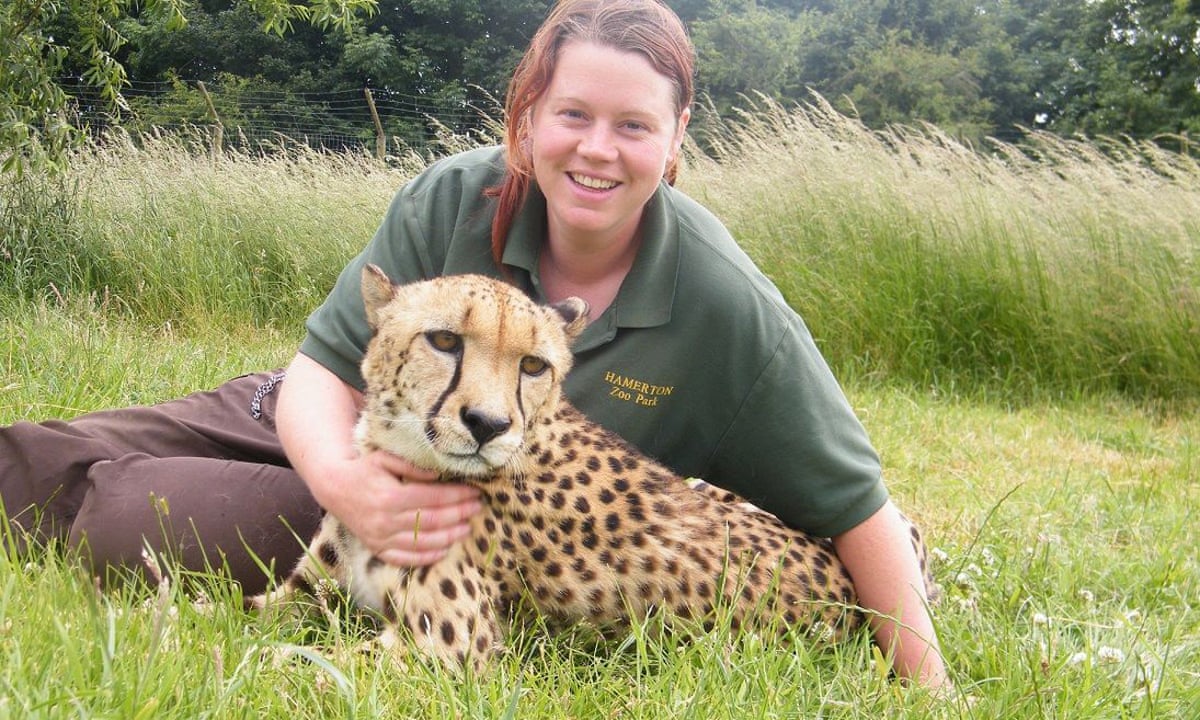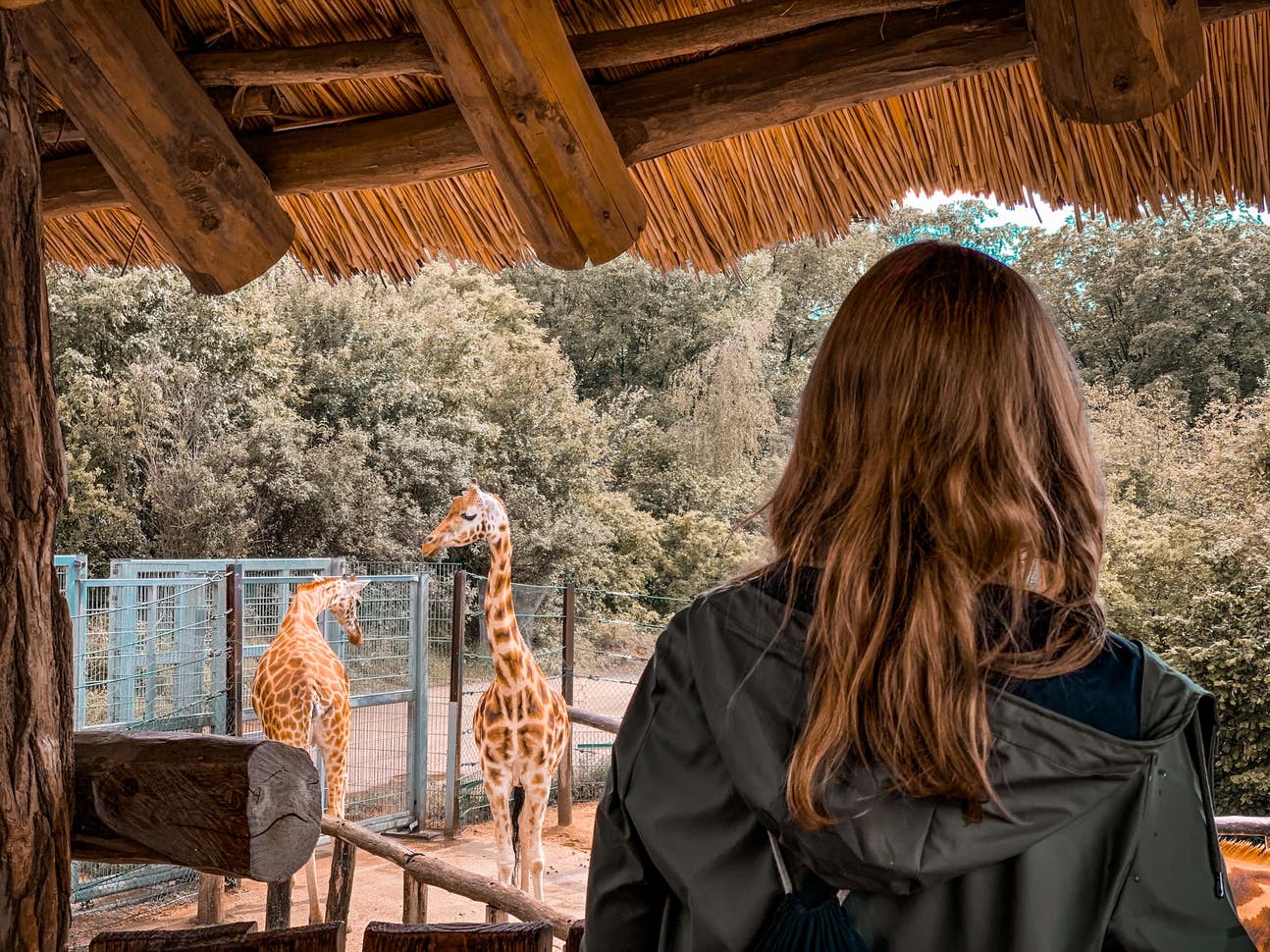This company has no active jobs
How To Become A Zoo Keeper?
"The success of a country and its moral progress can be evaluated by the way its animals are dealt with." - Mahatma Gandhi
Do you love animals and dream of operating in a zoo? Zoo keepers are type in securing wildlife and taking care of animals. At places like the Zoological Society of London (ZSL), zookeeper over 20,000 animals get the care they need from experts.
To become a zoo keeper, you need hard work, education, and a love for animals. This task is amazing, letting you deal with numerous species and assist with essential preservation work. If you're into wildlife or animal welfare, zookeeping might be perfect for you.
Starting your zoo keeper profession implies discovering what's needed. This guide will cover education, experience, and more. It's all you need to understand to start a fulfilling zookeeping career.
Understanding the Role of a Zookeeper
Exploring what a zookeeper does exposes a function filled with obstacles and rewards. They concentrate on animal welfare and conservation. Zookeepers strive to keep animals healthy and pleased in their care.
Daily Responsibilities and Tasks
A zookeeper's day is filled with crucial tasks:
- Preparing meals that meet each animal's nutritional needs
- Cleaning up enclosures to keep them tidy and safe
- Watching over animal health and behaviour
- Providing medications and treatments as required
- Developing activities to keep animals psychologically sharp
Workplace and Conditions
Zookeepers work outside in all kinds of weather. They handle both indoor and outside areas. The task requires being fit and able to handle the demands of caring for animals.
"Being a zookeeper is more than a task - it's an enthusiastic commitment to animal care and conservation."
Kinds of Animals and Specialisations
Zookeepers can specialise in numerous animal groups:
- Primates
- Big cats
- Marine mammals
- Reptiles
- Birds
Your function may involve working with 2-5 various animal types. This needs a lot of understanding and the ability to adapt.
Necessary Skills and Personal Qualities for Zoo Keeping
To be a top zookeeper, you need more than simply a love for animals. Your job will be tough and need you to handle animals and people well. You'll also need to comprehend animal behaviour.
What zoos try to find in individuals consists of:
- Exceptional perseverance and psychological durability
- Strong physical fitness and endurance
- Eager observation abilities
- Capability to remain calm under pressure
- High level of empathy towards animals
Getting hands-on experience is essential to mastering this function. You'll need to show:
- Advanced understanding of animal care techniques
- Efficiency in animal handling and security protocols
- Reliable communication with both animals and human visitors
"A fantastic zookeeper connects science, compassion, and preservation in every interaction with animals."
You need to understand about animal nutrition, behaviour, and basic vet care. Many zookeepers learn through training, offering, and ongoing knowing.
Zookeeper work is not simply a job. It's a huge commitment to teaching about wildlife and assisting preservation. Your enthusiasm and hard work will make you stand out in this fulfilling profession.
How to Become a Zoo Keeper
Beginning a career as a zookeeper needs careful planning and education. You must initially comprehend the academic requirements and training paths. These will turn your love for animals into a job.
Educational Requirements
To be an excellent zookeeper, you need a strong academic base. Most jobs try to find particular credentials:
- At least 5 GCSEs at grade 4 or above, consisting of English, maths, and science
- A levels or higher education credentials
- A college degree in biology or zookeeper animal science
- Level 3 Diploma in Animal Management
Required Certifications
Getting unique accreditations can really assist you in your zookeeper profession. Crucial ones consist of:
- Diploma in Management of Zoo and Aquarium Animals (DMZAA)
- Zookeeping Level 3 Diploma (RQF)
- Animal handling certificates
- Emergency treatment qualifications
Training Programs and Apprenticeships
Getting hands-on experience is type in . Numerous places provide great opportunities:
- Unpaid apprenticeships at wildlife parks
- Internship programs at popular zoos
- Practical training at locations like Colchester Zoo and Dartmoor Zoo
- Offering to gain real-world skills
Pro pointer: Create an in-depth portfolio to show your animal care abilities. It will assist you in task applications.
Structure Relevant Experience in Animal Care
Gaining hands-on experience is crucial for those wanting to be zookeepers. The job is extremely competitive. So, it's essential to begin developing a strong base in animal care.
Your journey begins with finding ways to work directly with animals. This is a strategic step.
"Experience is the very best teacher in animal care" - Wildlife Conservation Experts
Here are effective ways to get experience dealing with animals:
- Volunteer at regional animal shelters to develop fundamental animal managing abilities
- Seek internships at wildlife rehab centres
- Check out part-time positions at veterinary clinics
- Contact your local zoo for possible volunteer chances
Volunteering is an excellent way to learn more about animal behaviour and care. Many zoos and animal shelters are looking for people who wish to learn. These places use terrific opportunities to get hands-on experience and show your dedication to animal welfare.

Here are some suggestions to maximize your experience:
- Keep a record of your abilities and interactions
- Connect with experts in animal care
- Request for referrals and letters of recommendation
- Stay consistent and show your real enthusiasm
Keep in mind, practical experience makes you stand out in the zookeeping world. Each time you deal with animals, you find out more. This increases your opportunities of getting a job in animal care.
Profession Pathways and Professional Development
Beginning a career as a zookeeper is amazing. It provides lots of opportunities to grow and specialise. Your journey starts with comprehending the various paths in this field.

Entry-Level Positions
Entry-level jobs in zookeeping are an excellent start. They offer you hands-on experience. Zoos search for candidates with:
- Level 2 Diploma in Animal Care (minimum qualification)
- GCSEs in English and a clinical subject
- Volunteer experience at animal shelters or farms
Career Progression Opportunities
As you acquire experience, your career can grow. You can go up to:
- Junior Keeper
- Senior Keeper
- Team Leader
- Specialist Roles
"Continuous knowing and practical experience are essential to advancing in your zookeeping career."
Specialised Roles
You can likewise choose unique locations like:
- Conservation reproducing programs
- Animal training
- Wildlife research
- Educational outreach
About 25% of zookeepers get advanced degrees in zoology or animal conservation. Getting Level 4 credentials can increase your chances for senior functions and research.

Working Hours and Physical Demands
Ending up being a zookeeper suggests you'll work more than just routine hours. You'll face hard physical challenges and require to be versatile, consisting of weekends and holidays. Zoos are open every day, so you'll often work when others relax.
"Zoo keeping is not a common 9-to-5 task-- it's a way of life of dedicated animal care and dedication."
This job is physically demanding. You'll work outside in any weather condition, raising heavy items over 50 pounds. Your tasks may include:
- Early early morning feeding schedules
- Cleaning up animal enclosures
- Preparing specialised diets
- Conducting medical examination
- Keeping complicated habitats
Shifts can start as early as 5 AM and go late into the night. You'll be on your feet the majority of the time, moving between animal zones. Weekends and holidays become part of the task, requiring great deals of stamina and devotion.
Despite the obstacles, this job has excellent rewards. You'll grow strong, both physically and emotionally. You'll likewise make incredible connections with extraordinary animals.
Health And Wellness Considerations
Being a zookeeper includes its own set of difficulties. It's important to understand how to keep both animals and personnel safe. This means following strict health and safety rules.
Zookeepers deal with a distinct environment where safety is crucial. Studies show that health and safety are now as crucial as the zoo's main work.
Threat Management Strategies
There are several methods to manage risks in zoos:
- Daily checks of animal enclosures for threats
- Counting animals at the start and end of shifts
- Viewing how visitors act near animals
- Being ready for emergencies
Animal Handling Safety Protocols
Understanding which animals are most hazardous is important. Huge animals like rhinos can be really dangerous. There have been cases where zookeepers got seriously harmed.
Safety isn't just about using equipment - it's about understanding animal behaviour and staying alert.
Individual Protective Equipment
Zookeepers require to use the right equipment, including:
- Special gloves for handling animals
- Strong shoes for grip and security
- Clothes that secures versus germs
Getting vaccinated versus diseases like hepatitis B and rabies is likewise essential. It helps keep zookeepers healthy in their tough job.
Salary Expectations and Job Market
Thinking of a career in zoo keeping? It's crucial to understand zookeeper about wages and the task market. The field is growing, with more opportunities in the UK.
Let's look at what zoo keepers can make at different phases:
- Entry-level zookeepers start at about ₤ 14,000 a year
- Qualified ones make in between ₤ 16,000 and ₤ 22,000
- Senior zookeepers can make as much as ₤ 30,000 or more
The task outlook for zoo keepers is good. The sector is expected to grow by 5% in the UK by 2029. This suggests around 3,910 new tasks will be readily available.
"The Association of Zoos and Aquariums supports professional growth for zoo keepers," a report states.
Wages differ based upon several things:
- Experience level
- Specialisation
- Where you work
- The zoo's size and type
While the pay may not be high, the pleasure of working with animals is valuable. The average wage is around ₤ 17,000. However, overall revenues can be in between ₤ 13,000 and ₤ 27,000 a year.
Conclusion
Beginning a career in animal care is an amazing journey. It requires devotion, passion, and a love for knowing. With over 350 zoos and wildlife locations in the UK, there are numerous job opportunities. You'll get to work with amazing animals and assist protect wildlife.
To be a zoo keeper, you need more than just love for animals. You need to have a good understanding of biology, be able to interact well, and always want to learn more. You'll gain hands-on experience, find out about animal welfare, and establish a deep regard for nature. About 3,000 people in the UK have found fulfilling professions in this field.
Your success in zoo keeping comes from blending science with a love for animals. Whether you're interested in mammals, birds, or marine life, this job lets you aid with preservation. Every day will bring new difficulties and discovering chances that will enhance your skills and knowledge.
If you love animals and want to assist secure wildlife, zoo keeping might be for you. Handle the challenge, remain curious, and turn your enthusiasm for animals into a rewarding career.

